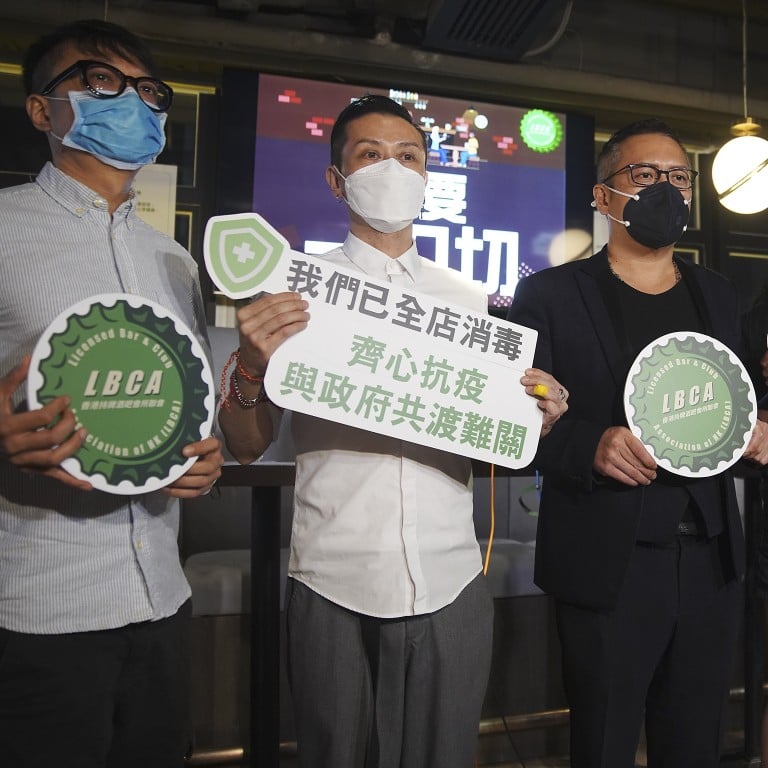
Long wait for help: Hong Kong’s stricken businesses say red tape is delaying critical Covid-19 subsidies
- Bars, gyms, beauty services forced to suspend business because of pandemic among the hardest hit
- Government agencies say they’re working as fast as they can, but need to check claims carefully
More than a thousand struggling businesses say red tape is keeping them in limbo after months of waiting for critical anti-pandemic financial aid from the Hong Kong government.
Estimates from industry groups and government departments show that 1,464 of the hardest-hit firms awaiting help include those forced to suspend operations for more than 100 days through wave after wave of Covid-19 infections over the past year.
“Are they waiting for me to go bankrupt?” asked Max Traverse, owner of the Honi Honi Tiki Cocktail Lounge in Central.
Bars are among the businesses worst affected by repeated closures, the others being beauty services, party rooms, karaoke lounges and gyms.
Officials scrap coronavirus-related ban on eating in restaurants after just 24 hours
The government has rolled out more than HK$310 billion (US$40 billion) in Covid-19 relief measures, but checks by the Post found that some businesses are still waiting for the second or third round of aid announced last April and September.
Business owners complained of having to meet complicated document requirements and the lack of officers to deal with inquiries.
Ben Leung Lap-yan, charter president of the Licensed Bar and Club Association of Hong Kong, estimated that around 50 operators with a total of about 250 staff, were still awaiting payment from the April round, which promised catering businesses an allowance of between HK$250,000 and HK$2.2 million in two tranches.
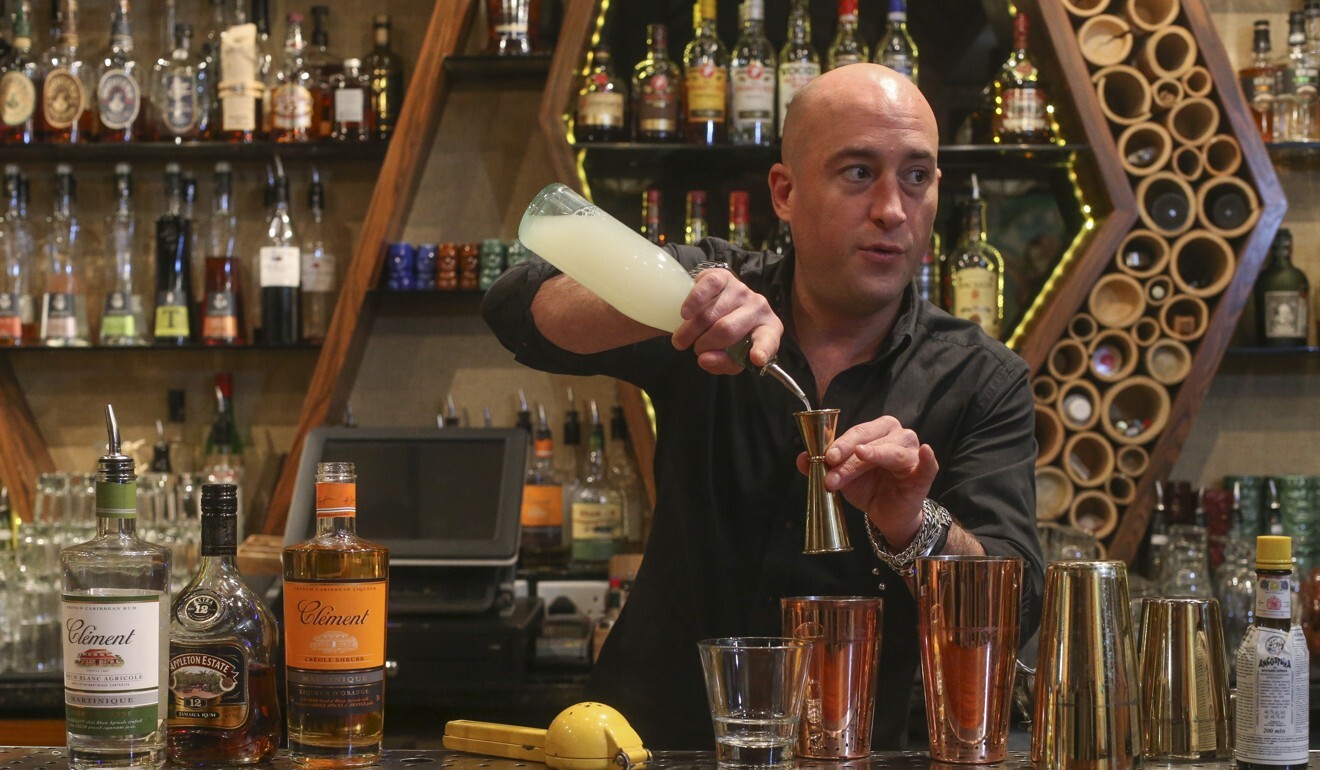
They received the first round of subsidies in mid-July, but the second disbursement, initially expected around September or October, was pushed back as officers conducted audits following some miscalculations in the first tranche.
“The saddest thing is the allowances are still not here,” Leung said.
Traverse said his eight-year-old bar could go under if the delayed subsidies did not arrive by the end of this month.
He applied last May for a one-off subsidy of HK$250,000 meant for catering businesses, but received only one round of payment for half the amount.
Hong Kong’s fitness industry on verge of financial ruin as gyms fall
He said his bar had had no steady revenue since July after being ordered to close for more than 100 days and counting, and he had been paying his eight staff HK$9,000 a month out of his own pocket since August.
He has written to the Food and Environmental Hygiene Department (FEHD) three times to ask about the status of his application and why the disbursement was taking so long, only to be told it was still being reviewed, nearly seven months after the deadline for applications last June 5.
Thousands of bars in Hong Kong missed out on the traditional peak season over Christmas and the new year, after being forced to close since November 25 as the city battled a fourth wave of coronavirus infections.
“They don’t let us open, and that means we don’t have any revenue. But at the same time they don’t help us enough,” Traverse said.

The FEHD said it had approved applications from more than 7,500 catering businesses out of a total of about 9,100 seeking the subsidies as of Wednesday.
To get the second disbursement, applicants must provide documents related to their payrolls between May and July to prove they had not laid off staff over that period and had passed on at least 80 per cent of the first round of subsidies to their staff.
Any applicant suspected to have failed to fully comply with the terms would be asked to provide more information, it said.
Restaurants get much-needed lift as evening dining ban ends, but many still feeling the pinch
Gyms gripped by uncertainty
The fitness industry has found itself in equally dire straits, after having to close for more than 120 days and counting. The latest closure order kicked in on December 8.
Tricia Yap, founder of personal training gym Limitless Health in Central, said she tried to secure government subsidies but faced multiple stumbling blocks.
After Covid-19 hit Hong Kong a year ago, she rebranded her business from R3 Personal Training to Limitless Health and moved to a new building in Central. She retained five employees through last year.
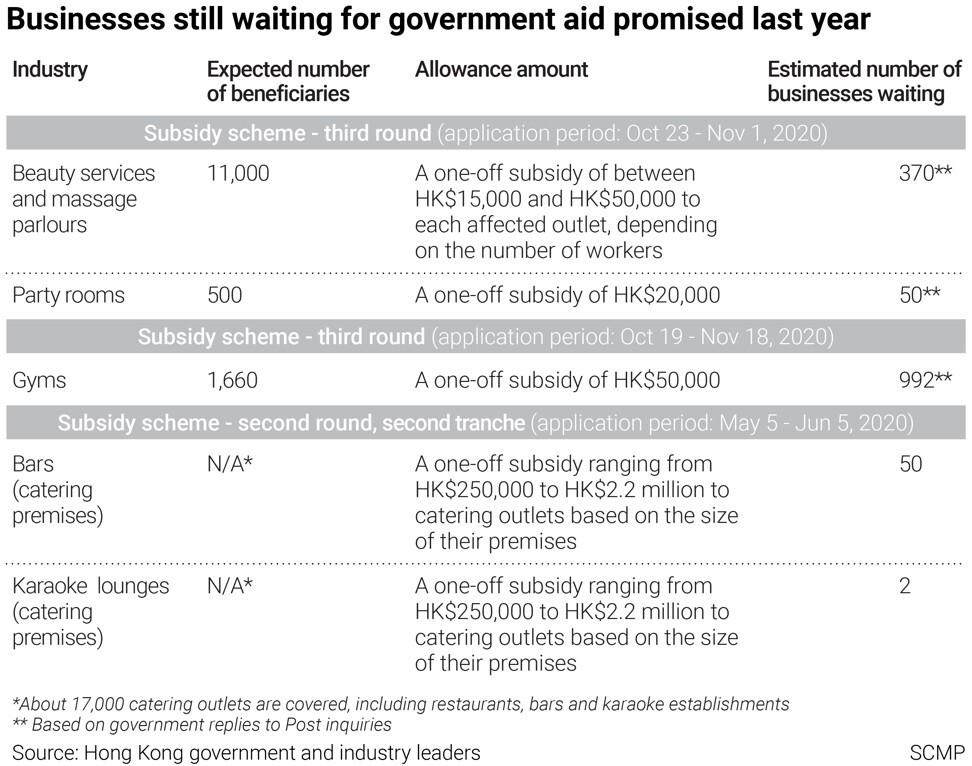
She was awarded a first round of HK$100,000 in June, six weeks after applying for the subsidy, but the rebranding proved a major hurdle when she tried to secure a second subsidy of HK$50,000 announced last September.
Although the documents she had to supply were the same as in the earlier round, including a copy of the gym’s tenancy agreement, employee payslips and photographs of the gym entrance with a logo and interior set-up, she said officials processed her application as a newly rebranded gym.
“On December 10, they emailed us, saying that we didn’t provide enough information, when in fact, we had provided the same information as in the first round,” she said.
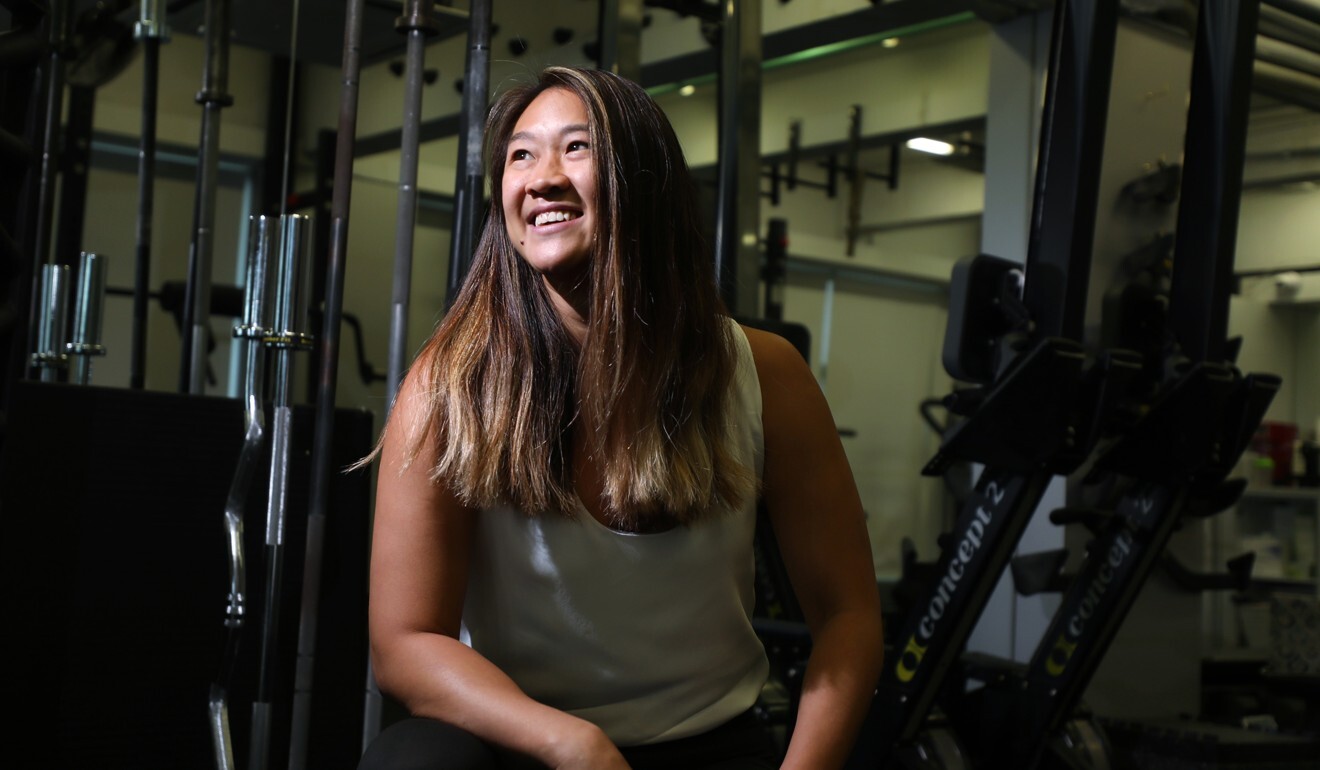
She provided a copy of the gym’s training calendar but was told that only timetables for group classes could be accepted, even though the gym only provided one-on-one sessions.
“It’s been annoying,” she said. “I’ve already said to my team that we’re preparing for 2021 to be pretty much the same as last year.”
Ray Or Chuen-ting, convenor of the Fitness and Combat Sports Alliance, which represents more than 200 gym operators, said about 140 to 150 businesses like Yap’s were still waiting for the one-off subsidy almost two months after applications closed.
He said he asked the government to increase the number of staff handling the applications, but there had been no improvement.
A spokeswoman for the Home Affairs Bureau, responsible for the fitness businesses subsidy scheme, said 650 out of 1,642 applications had been approved by Thursday, and vetting of the rest was still under way.
She insisted that the process was similar to that for the earlier round and disbursements would be made within 30 days of receiving all required documents.
Businesses expect a joyless holiday season as social-distancing rules bite
‘Screening is slower, stricter now’
Even those who managed to secure financial aid had woes to describe.
Barry Gausden, director of Glow Spa and Salon, said he was offered only HK$18,000 last June as the first round of wage subsidies to cover part of the salaries for his 23 employees.
He said the amount was meagre, as the HK$81 billion Employment Support Scheme was supposed to pay up to 50 per cent of employees’ salaries – capped at HK$9,000 a month – between June and November in two tranches.
He was told to submit other information. “But they were not really clear about what information I needed to provide,” he said.
After five months of going back and forth, he eventually obtained a total of HK$555,975 in that first round of assistance.
But he faced the same problem when he was given less than HK$33,000 in the second tranche, paid in November, and his request for a review was rejected.
He was told the deadline for requesting a review was seven days and he had missed it. He said he was not aware of that cut-off, and at the time was still trying to sort out his original dispute.
With beauty services forced to close again since last month, Gausden said his losses were piling up and he was still hoping his request for a review would be approved.
“I’m just hoping it won’t again take five months,” he said.
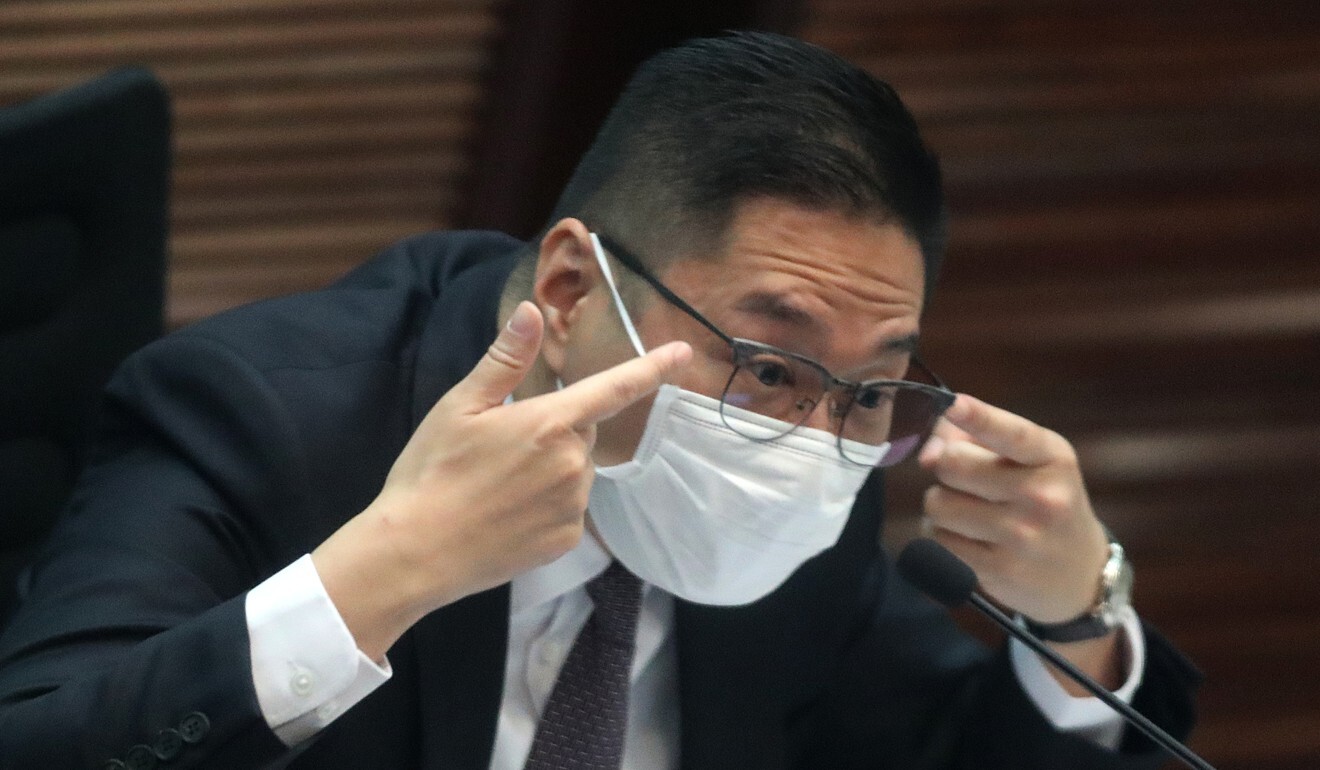
The secretariat under the Policy Innovation and Coordination Office that is handling the scheme refused to comment on individual cases, but said the time required for completing a review depended on the complexity of the case.
He said notification messages about successful applications for the second tranche were sent to businesses via emails and SMS messages and had “expressly reminded” recipients that requests for a review had to be made within seven days.
In exceptional circumstances, however, discretionary consideration could be given to well-justified cases, he added.
Lawmaker Peter Shiu Ka-fai, from the pro-business Liberal Party, said he learned that many beauty businesses were still awaiting approval for an allowance of between HK$15,000 and HK$50,000 earmarked in the September relief package. Applications closed on November 1.
He learned that the screening process was slower and stricter this time, as the authorities had found that some applicants had tried to cheat the government in earlier rounds of subsidies. Last September, police said two dozen people had been arrested on suspicion of submitting bogus applications to obtain more than HK$5 million in total from the government’s Covid-19 relief fund.
Massage parlours and gyms finally reopen but where are all the customers?
But Shiu said being strict was no excuse for being slow, and the government should have added more staff to quicken the process.
“People are waiting for the money to save their lives,” he said.
A government spokeswoman told the Post it was not true that the process of applying for the second round of assistance was more complicated than the first.
She said the secretariat handling applications found some problems such as backdated business registrations, duplicate submissions for the same address and incomplete bank account information, and these had to be dealt with.
As of Friday, about 7,830 out of 9,513 beauty salons and spas which applied for help had been approved.


